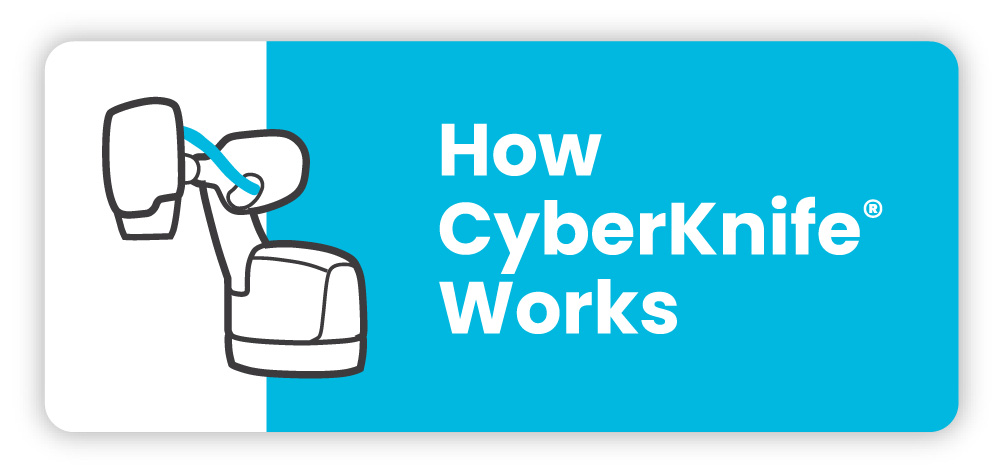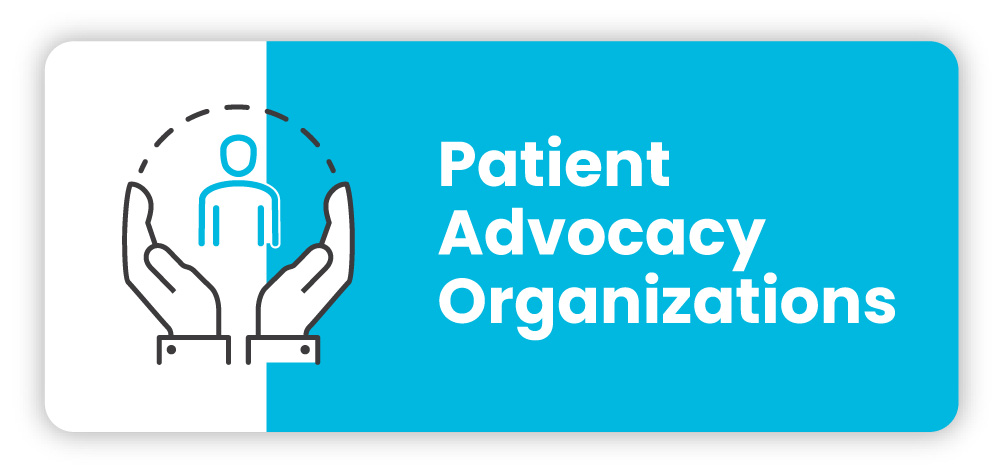Most people, like Warren, worry about surgery – the procedure and its potentially debilitating side effects. After choosing a non-surgical alternative for his care, the CyberKnife® System, Warren chronicles his experience through one week of treatments. Listen to Warren and his oncologist discuss each of the five days of treatment. Learn specifically why the technology is ideal for treating prostate cancer. And find out whether Warren feels he made the right decision avoiding surgery.
VIDEO TRANSCRIPT
WARREN: My name’s Warren Forman. I’m 67 years old, here with my wife, Connie, and my two boys, Tivon and Jordan.
CONNIE: We’ve been married 32 years and now we’re taking care of the medical things in our lives [LAUGHTER].
WARREN: Going back about a year and half ago I had a PSA level of 5. A year later it was up to 8. The biopsy came back with no cancer on the left side and two out of four specimens on the right side had cancer cells. They were Gleason 8.
CONNIE: So you start thinking about your relatives and he also had forgotten that his Uncle Solly had died of prostate cancer.
WARREN: I wasn’t terribly alarmed. I was more concerned about what would fit into my lifestyle in matters of side effects, which is one of the reasons why I eliminated surgery really from the beginning.
CONNIE: He did a lot of research and he was able to speak to other people who went through the procedure that he’s having now, CyberKnife.
KATZ: I’m Dr. Alan Katz and we’re standing here at the CyberKnife in Flushing, Queens. The CyberKnife is actually an ideal tool to treat prostate cancer because it turns out that prostate cancer, unlike most other cancers, has a great sensitivity to dose per fraction. That is a very high dose and fewer fractions seems to work better biologically than a lot of little doses, which is the standard way of treatment. So in order to deliver the five treatments that we do with very high doses you need to have what CyberKnife does for you. You need to have great accuracy and you need to have great conformality, that is you want the dose to hug the prostate and have as little dose as possible to the bladder and the rectum.
WARREN: Your mother and I will go into Flushing to the CyberKnife.
MAN: What time will you be done?
WARREN: I think it takes about 45 minutes the first day. It may take a little longer to set up and everything else, but.
KATZ: Hi, Mr. and Mrs. Forman. Good to see you again.
WARREN: Hi.
KATZ: OK, why don’t we come back and talk a little bit before the treatment. You’re going to feel nothing. You’re going to see that robot moving around you. During the treatment if you have any problem of any sort you can raise your hand, just yell and we’ll be able to stop the treatment and continue it.
MAN: You take a look at the monitor. The machine looks like an arm and it’s able to bend and move all over the patient so that it’s not just in a fixed position. It’s all around all the points that need to be treated with the prostate. Usually after the first day the patient is very nervous. After the second day they kind of see how the machine is working inside the room and they usually are just very relaxed after that.
WARREN: Well, we had our first treatment last night. After the first procedure with CyberKnife I felt fine. I felt really nothing. I didn’t feel tired. I didn’t feel fatigued. Had to get up rather early this morning for day two of the CyberKnife treatment. Again I had to do a Fleet enema to empty myself out. My wife Connie will be staying home. There’s really no reason for her to have to go with me because I feel fine going by myself. Fortunately we just got out of the worst part of the traffic and we should be arriving in plenty of time.
MAN: CyberKnife. We’ll want to know how long the treatment will last. We’ll have a, once we bring up the patient’s plan at the console it will give us an estimated time. Warren is doing exceptionally well right now. He’s very relaxed. There’s not a lot of movement at all. It’s a very smooth treatment right now.
WARREN: Staying still for the 45 minutes of the CyberKnife treatment is a little difficult. You hear the roaring of the machine and the movement of the machine. You look around and it’s kind of odd. It’s really kind of strange. This machine is moving around your body. You start playing mental games, as when is it radiating me and when is it not radiating me? But it’s kind of silly because there’s no way of your knowing.
MAN: The mechanics of the machine when they’re rotating to the next position can be kind of loud. So we do put on some music to help the patient relax, so that he has less movement if possible. A wonderful feature about the CyberKnife is the chances of not treating the wrong patient with the wrong plan. Each plan is designed for every particular patient, where it’s pretty difficult to treat the wrong patient with the wrong plan. We go through a series of checks. I think that’s an awesome safety mechanism that we have with this treatment.
WARREN: I feel fine. It’s really very, very uneventful. Now I’m going to go home and have something to eat and then get to my home office and start doing some work. Nothing much. I’m back in the house. I had my second treatment this morning.
MAN: My father’s been a real estate lawyer I think since the early ’60s.
WARREN: It’s quarter to eleven and I just returned from my second treatment and I’m already here at work.
MAN: His work ethic is far above the average person.
WARREN: I got a delivery of mail from the office, which we’ve gone through.
JORDAN: When I found out my father was diagnosed with prostate cancer obviously I was very concerned.
WARREN: Going over my emails. I’m probably going to put in the better part of a full day’s work today.
JORDAN: We’ll all be here for him, try to make it go by smoothly, but I’m sure he’ll be on the phone as often as he can be.
WARREN: And I’m looking forward to getting it done. Then we’ll move on to day three tomorrow.
Day three of my CyberKnife treatment and aside from being dark out this morning it’s also nasty out. So our trip in this morning will be a little bit more adventurous than usual. When I see Dr. Katz today I’m just going to review the Fleet enema issues because it is a little burdensome having to do it every single day.
KATZ: Warren, so far you’ve had three treatments. Today is your third. How have you been feeling?
WARREN: I feel fine.
KATZ: Good. Any problems with the urination?
WARREN: No.
KATZ: Nothing? OK. You’ve been taking the Dulcolax the night before and a Fleet enema. Has that been upsetting your stomach at all?
WARREN: Yes, it has.
KATZ: OK. So I think since you’re getting some cramps and you clean out so good we could probably back off on the Dulcolax. I’d just take the Fleet enema in the morning. That should be sufficient. Two more days of the same thing and you’re done.
MAN: Prior to the patient coming in the doctor implants the seeds within the patient. The seeds that are used for tracking with the machine. It lets us know where his prostate is. When the doctor implants the seeds we’re able to track where exactly the prostate is by using the seeds and fiducials that are in place. That’s letting the machine know that this is where the prostate is and it’s able to track every movement that’s going on.
KATZ: This is the only form of radiation that I’ve ever worked with where we’re able to actually ascertain through the use of the fiducial seeds that we constantly track exactly what the position of the prostate is. To be able to follow this and to correct for this during the treatment really gives us unparalleled accuracy. So today is the third day of Warren’s treatment. We don’t see any side effects yet from the CyberKnife treatment. He’s not having any urinary problems. He is having one side effect which really comes from the cleanout. We do this fairly rigorous cleanout to insure that there’s no gas or stool in the rectum, because gas or stool in the rectum can make the prostate move. So we’re doing this to keep the prostate very still. It will be next week when he starts to get some of the side effects from the CyberKnife treatment, which will be some urinary frequency, a slower stream, maybe some urgency and some bowel frequency. And they generally last about ten to 12 days. Most patients when they seek out CyberKnife treatment generally have looked at other forms of radiation and one of the things that they find is say with surgery that there’s this risk they could have, incontinence of urine, that they may lose erectile function. So obviously the first thing that most people are concerned about is will my cancer be cured, of course. So far our results have been very, very good in that department. But secondarily then the patients are concerned about these possible side effects. The chance of getting any significant incontinence with our treatments has been very low, less than 1%, much better than surgical [series?]. We’ve had a very, very high success rate in preserving erectile function. We’re seeing about 80% of preservation.
WARREN: I am pleased with the way things have been going so far with the CyberKnife treatment. I’m looking forward to finishing off the last couple of days.
We’re getting ready to start Day Four of the CyberKnife treatment and I’m just getting some paperwork together because after the treatment I’m going to go into the office. The people in the office are anticipating my coming in just to make sure that I’m being honest and that I’m fine, because they are concerned. They keep on asking me, anything wrong? Do you feel anything?
MAN: Today Mr. Forman’s here for his fourth day of treatment. One of the advantages of the CyberKnife for radiation is the amount of time that it takes to be treated. Mr. Forman will be done with his treatment in five days. Most patients who do come in for the CyberKnife treatment have a lot of daily tasks that they have to do, a lot of them work. So this is a great option for them for their treatment.
OK, Mr. Forman. The fourth treatment is finished. One more tomorrow.
FORMAN: My firm consists of six of us. So it’s myself, a paralegal and support staff. I know when I walked in they were all very happy to see me back. I’m back. I feel back.
GINA: I think he looks great. I think he looks better than when he left the office. The treatment seems to be successful. I think he looks awesome.
ERICA: I was happy to see him and we gave him a hug. I gave him a hug, Gina gave him a hug. I asked him how he was doing and he’s like I’m fine.
GINA: Working with Warren during the course of his treatment was really no different than any other time when he’s been on vacation or medical leave. Basically we communicate over the phone, via email. We get him his mail and documents by messenger or personal delivery from one of the staff members. Really nothing has changed.
MAN: And you feel good?
WARREN: I feel fine. Just one more day, that’s all and I’ll be back to normal.
[SONG for second night of Chanukah]
WARREN: This is the second night of Chanukah, which reminded me that it was a night that a very dear friend of ours, Michael Clark, passed away. He died of cancer. Not prostate, stomach cancer. Having had my fourth CyberKnife treatment today and having it coincide with his death, it made me think and be thankful for the CyberKnife treatment. He unfortunately didn’t have that opportunity. Tomorrow’s my fifth and last CyberKnife treatment. I’m looking forward to it being over with it, not that it was a drudge or it was difficult or I felt any pain or suffering from it, but just knowing that it’s behind me.
This is day five, the last day of CyberKnife treatment. I went to bed last night realizing that I only had to get up at this early hour one more time.
MAN: His treatments went really well. He hasn’t had any issues. If everything is fine from there then he’ll make a six-month follow up with the doctor and if he has any other questions [UNINTELLIGIBLE].
KATZ: I’ve studied 600 to 700 patients now that I’ve treated with CyberKnife for prostate cancer. In those patients that have four years follow up we’re seeing extremely low levels of PSA. If you have an excellent PSA level, very low, at four to five years you pretty much are cured.
MAN: After the last day of treatment we find the patients are very appreciative of our service here. They’re very appreciative that it’s only been five days and they are finished with their treatment.
WARREN: Just finished my fifth and last day treatment with CyberKnife, which is behind me here. I’m done. It’s been an interesting week. Probably if anything stays with me it’s the reaction of my employees and the people I work with in the office when I came back, how happy they seemed to be that I was there and gratified that I was well. That was really kind of nice. Tomorrow night we’ll be having family over to celebrate Chanukah and I think everybody will be happy to be there with my treatment having ended. So I think that we’ll have two reasons to celebrate tomorrow.



